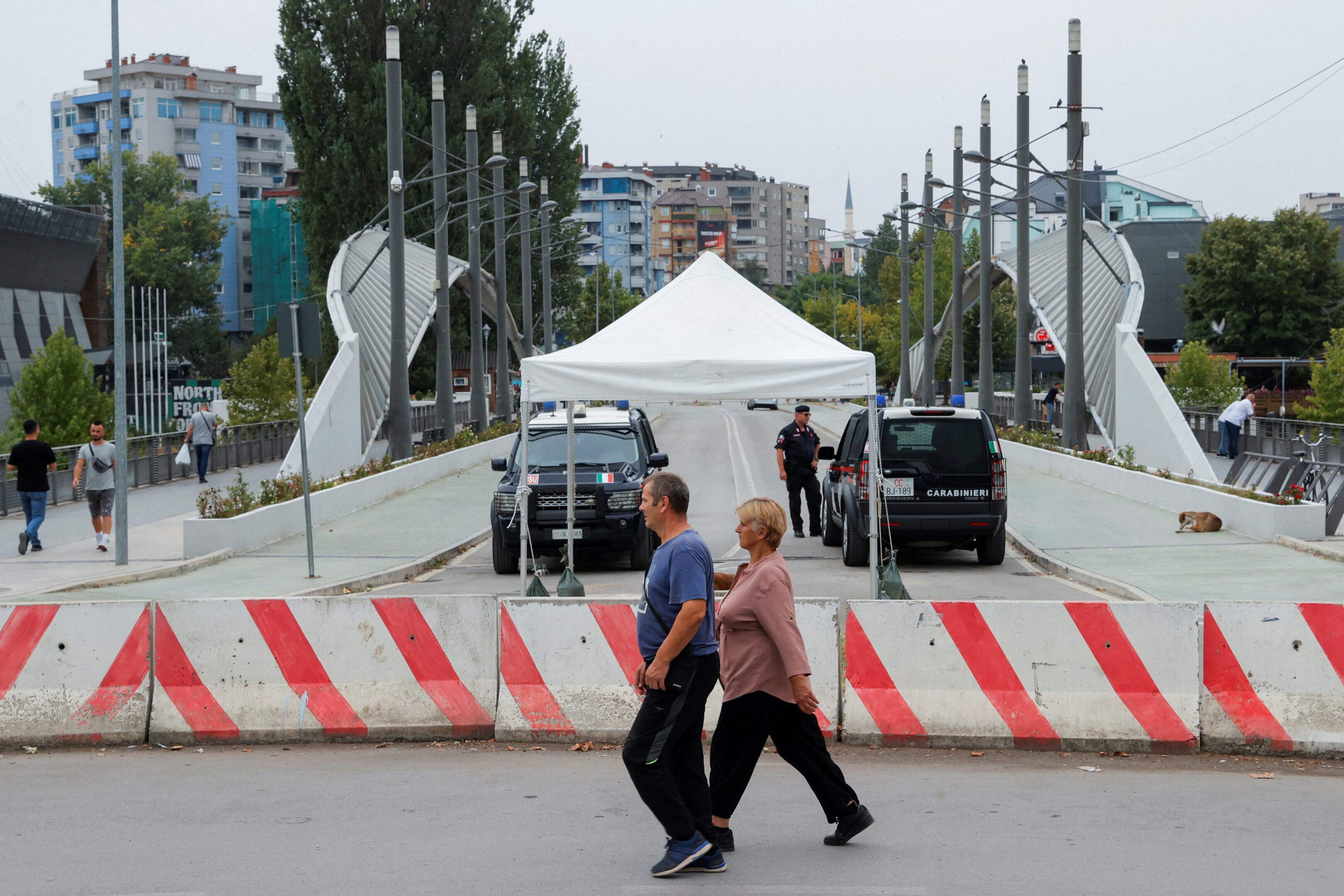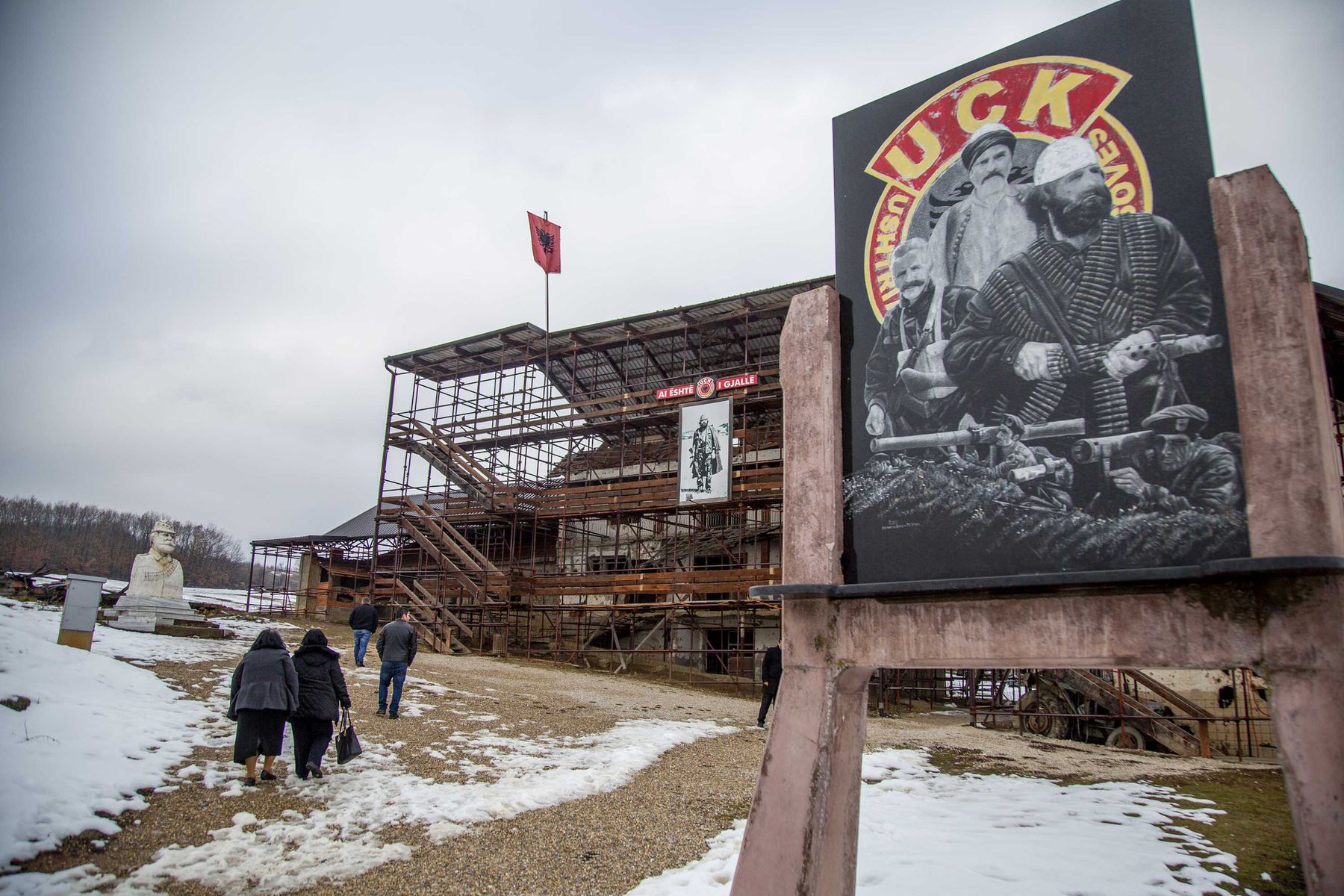Sovereignty, right of decision and geopolitics in Kosovo
- “It is time for Kosovo’s legitimacy and sovereignty to be recognised as a full state, because it is a new state created by the will of its citizens, we should not turn our backs on democracy and the decision of the citizens.” With these words, on November 10, 2021, Mertxe Aizpurua of EH Bildu asked Pedro Sánchez to acknowledge the independence of Kosovo in the Congress of Spanish Deputies. Subsequently, there was an intense debate on social networks, which is not surprising given the legitimacy and degree of sovereignty of the State of Kosovo.
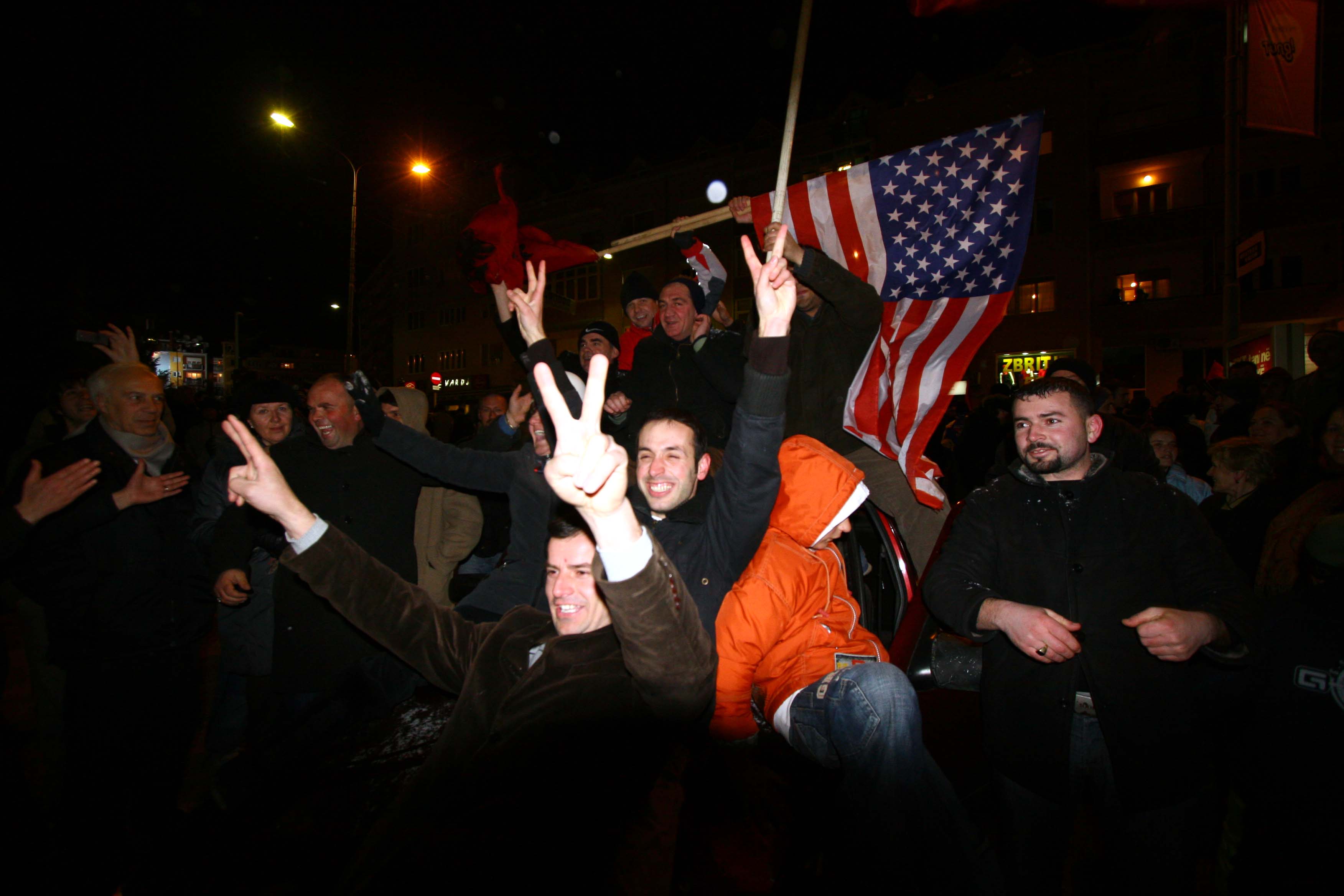
Kosovo is not a sovereign country, its organisation designs the West and observes, conditions and limits its functioning. Certain competences, especially those relating to defence and security, are in the hands of international bodies. Some speak of supervised independence, others speak of direct protectionism. Kosovo therefore proclaimed independence when EE.UU. And his allies authorized him, neither before nor after, in 2008. The declaration of independence was endorsed by 90.8% of the Members of the Kosovo Parliament who were born from the elections in which 44.9% participated.
No referendum on secession has been held in the former province of Serbia, but we know from the surveys that a large majority of the population prefer to join Albania rather than be independent. That is why the flag of Kosovo is not very dear, and what is more, the main party of the current government and the largest parliamentary group, Lëvizja Vetëvendosje (Self-determination Movement), was against the flag and the anthem of Kosovo until it came to power. Vetëvendosj has often denounced the situation of the “neo-colonial and anti-democratic” independent Kosovo and called for self-determination to end international occupation.
In Kosovo, however, few question that if this region of the Balkans is a state it is because Washington has wanted it, so, along with the Albanian flag, seeing that of the United States of America is very normal. In all international surveys, Kosovo appears again and again as the most American country in the world. Thanks to Washington’s help to win the war and support for independence, Kosovo is more Albanian than ever in exchange for limiting its sovereignty and its “right to decide”. Vetëvendosj wanted to change the situation. Albin Kurti, leader of the party and prime minister, explained clearly in an interview given five years ago in the digital magazine Politico: “We would like Kosovo to have the right to join Albania. At present, our constitution does not allow us to identify with another country. We would like to do so in a peaceful and democratic way, in contrast to our violent separation by the great powers.”

The words of Kurti showed that the Western powers gave Kosovo a strong independence. In fact, states are geopolitical creations. The “right to decide” on the independence of a territory does not exist in the abstract. It is a political action which can sometimes serve to promote the freedom of peoples, at other times it can serve to fragment, neutralise or conquer peoples for the benefit of international powers; in the case of Kosovo, for the benefit of the West and, in particular, of the USA.
The creation of a new independent State requires two conditions: the achievement of the monopoly of violence in the proclaimed territory and the international recognition of this reality. Kosovo has the problem with the last condition to become a standardised state. At present, half of the UN states recognize their independence, mainly allies and countries of influence from the United States. However, among the states of this profile there are exceptions, countries that have secessionist movements at their borders or that may have them potentially do not recognize it. For its part, among the members of the UN opposed to the recognition of secession, there is a vast majority of countries in Latin America, Africa and Asia not displaced by the Western bloc. This profile exempts recognition by religious affinity of one or another Muslim country.
In short, the debate on the recognition of Kosovo is a cruel geopolitical battle between the western bloc and the other countries. The latter see the new State as a result of a violent process that violated the rules of international policy, as it cannot be forgotten that the birth of the State of Kosovo has its roots in the NATO attack on Yugoslavia in 1999.
The war in Yugoslavia,
milestone At that time the world was unipolar. In Washington, however, they knew that this total international hegemony could not last long; therefore, before creating a new global power, Zbigniew Brzezinski, a former national security advisor, said EE.UU. It had to take control of Eurasia in order to be able to maintain global leadership. In this context, the strategy that Washington launched in the 1990s must be framed. The first step towards expansion in the Middle East and Central Asia was control of the Balkans. But Yugoslavia ' s independent sovereign policies and diplomacy were the main obstacle, as the country had to be a fundamental step for potential oil pipelines and pipelines and had an unbeatable geographical position in establishing military bases that would serve to initiate military operations in the Middle East.
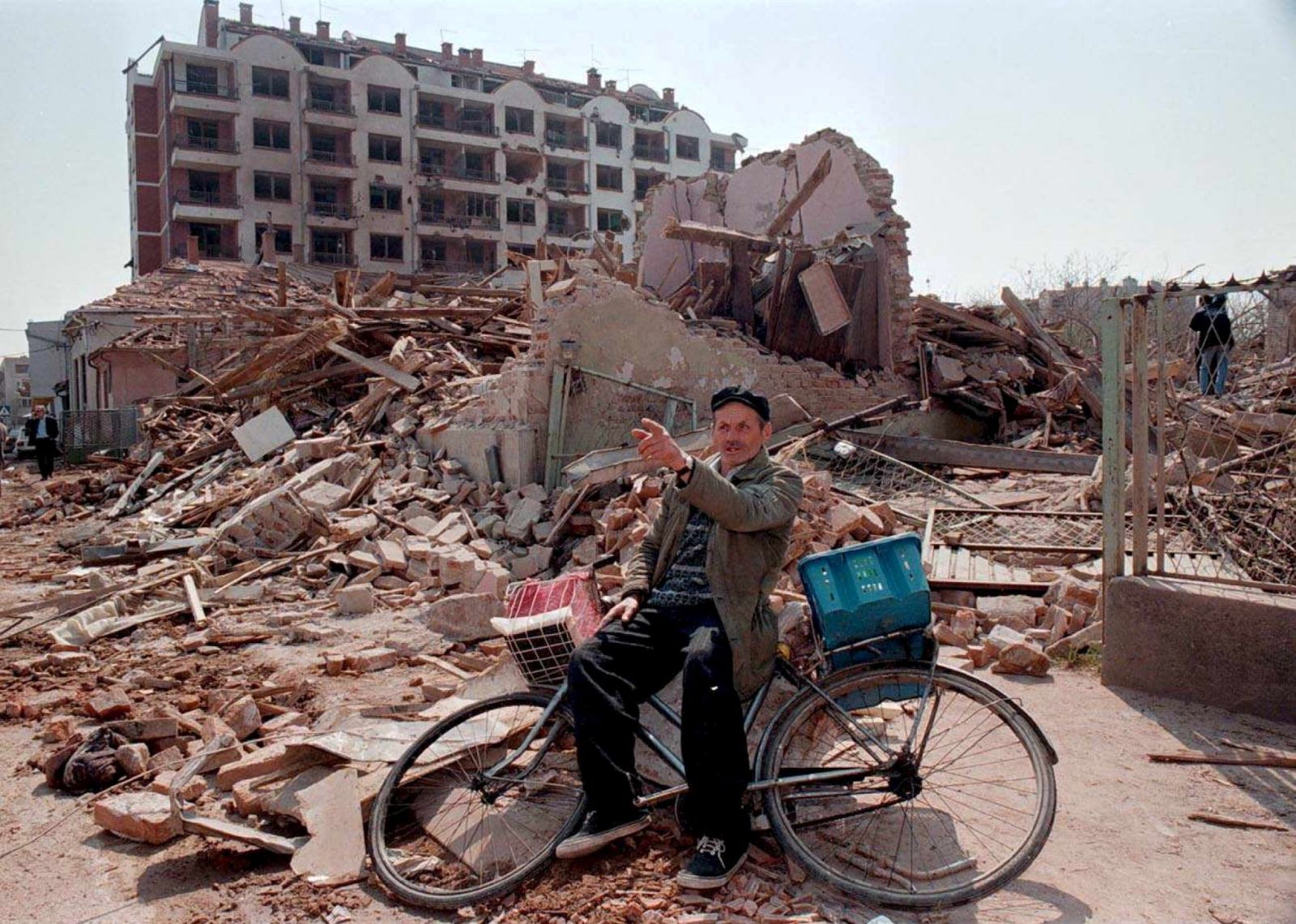
An excuse was needed to attack Yugoslavia and this time it would be the Kosovo conflict. Kosovo was a multi-country territory populated mainly by Serbs and Albanians in the nineteenth and twentieth centuries: two languages (Albanian and Serbo-Croatian) and two religions (Muslim and Orthodox), with other national and linguistic minorities, such as Roma or Turks.
The struggle between the two nationalisms of Kosovo has had wars of high and low intensity, with victims and aggressors on both sides, but the demographic war has been the main element that has conditioned the final outcome of the struggle. Despite bilateral expulsions and attempts at colonization (Bir), the Albanian victory is sustained by an immense birth rate. Kosovo Albanians rose from 498,244 in 1948 to 1,226,736 in 1981. In the 1961 census, the Albanians (including the culturally assimilated gypsies) were 67 per cent and the Serbiar-Montenegrin were 27.5 per cent (the Slavs, in general, 30 per cent). This trend would increase profoundly in the coming years and in 1995 the Albanians (including the culturally assimilated gypsies) represented about 90 per cent, eager to leave the majority of Serbia behind.
In 1998, the disputes between the KLA (Kosovo Liberation Army) and the Yugoslav security forces hardened. As a result, both sides increased human rights violations and created a structure of political opportunity to implement an attack plan for Yugoslavia. The United States belonged to the UÇK terrorist group list, but with the rise of the conflict Washington understood that it had at hand the excuse of attacking Yugoslavia, thus becoming from morning to night an ally of the Western UÇK.

From that point on, NATO has given the doctrine of humanitarian intervention every prominence. A large propaganda campaign was launched, producing arguments and lies that justify the attack, some of them explained by the documentary report that began with a Lie produced in 2001 by the German television WDR.
The United States had decided that they wanted to expand their troops in the territories of Yugoslavia, but, in order to bypass the story, it pushed forward the farce of the Rambouillet peace negotiations to justify the NATO bombings of Yugoslavia. The proposal for EE.UU. and its allies directly demanded the full military occupation of Yugoslavia:
" NATO personnel, with their vehicles, boats, aircraft and equipment, must be able to travel freely and unconditionally throughout the territory of the Federal Republic of Yugoslavia, including access to its airspace and territorial waters. These forces shall also have the right to use any space or service necessary to camp, manoeuvre and maintain NATO actions, train and implement them.”
The Yugoslav war business did
not sign that agreement, as any other country would not do with minimum dignity. Thus, on 28 March 1999, the NATO bombing of Yugoslavia began in 78 days. What was born as a defensive alliance, without ever having to make a defensive operation, went on to attack using the doctrine of human rights as an excuse. The first test was in 1995 in Bosnia-Herzegovina, where NATO, whose regulations did not allow it, carried out a military intervention with the support of the UN. The second time the wager increased: The 1999 attack occurred without the support of the United Nations in violation of international law.
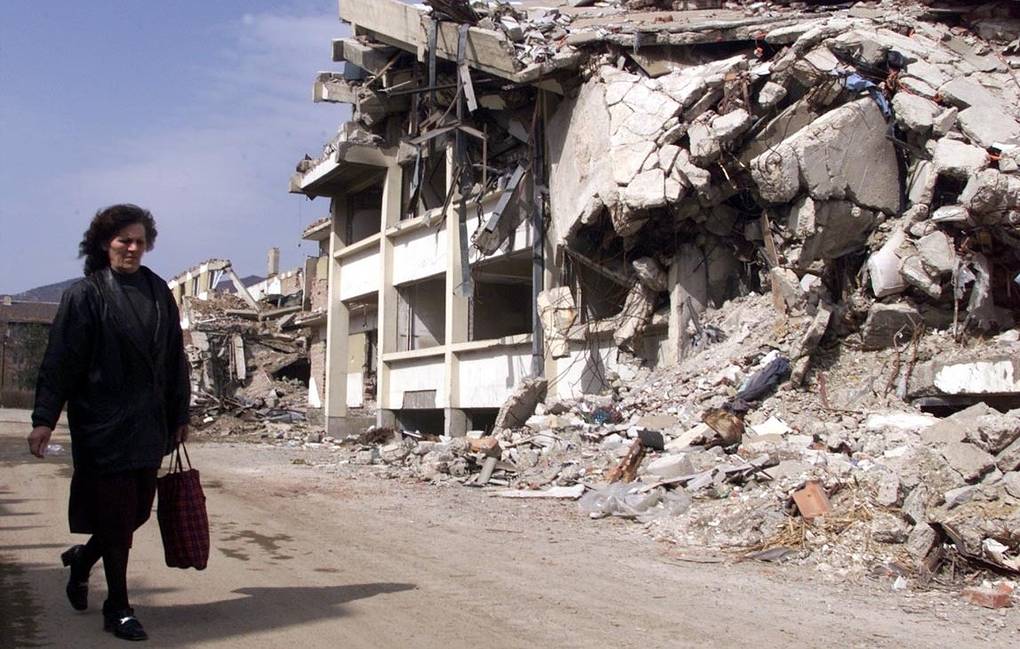
The first consequence of the bombing was the suspension of international order and standards created under the leadership of the United States. After the disappearance of the Soviet Union, Washington had no intention of curbing its military expansion by international law. First it was Yugoslavia; then, in 2003, using the lie again, they carried out the invasion of Iraq over international law.
The second consequence of the bombings was the deaths and injuries. NATO used weapons of mass destruction, such as depleted uranium bombs and diffusion bombs, as the main limit of attack was not the military but the citizens. The majority of the thousands of deaths were civilians, resulting in victims of all ages, including children.
Among them, NATO bombed schools, sanatoria, media and the Chinese embassy. But it wasn't just about killing people and scaring them, it was about complicating people's lives. NATO destroyed tens of bridges in Yugoslavia and bombed the electricity grid leaving millions without water or bread. The cement factory, the oil industry, the Yugo automobile factory and the telecommunications systems also bombarded and destroyed. The Nišs tobacco factory was hit three times bonbek.Ondoren, because the remnants of the establishment purchased by the American tobacco company Philip Morris at an unbeatable price, the bombardments usually create conditions to steal national resources.
Destruction of infrastructure for further reconstruction. However, the destroyed country does not have the means to carry out reconstruction work. The only solution is to look for loans at the international level. This money usually leaves the West to go back to private companies in the West and do works. Those who have broken your house in the end will take part of your house for them and charge you for rebuilding another part. Countries lose sovereignty after indebtedness, whether it be Yugoslavia, Afghanistan, Iraq or Libya, in all cases it has worked the same way.
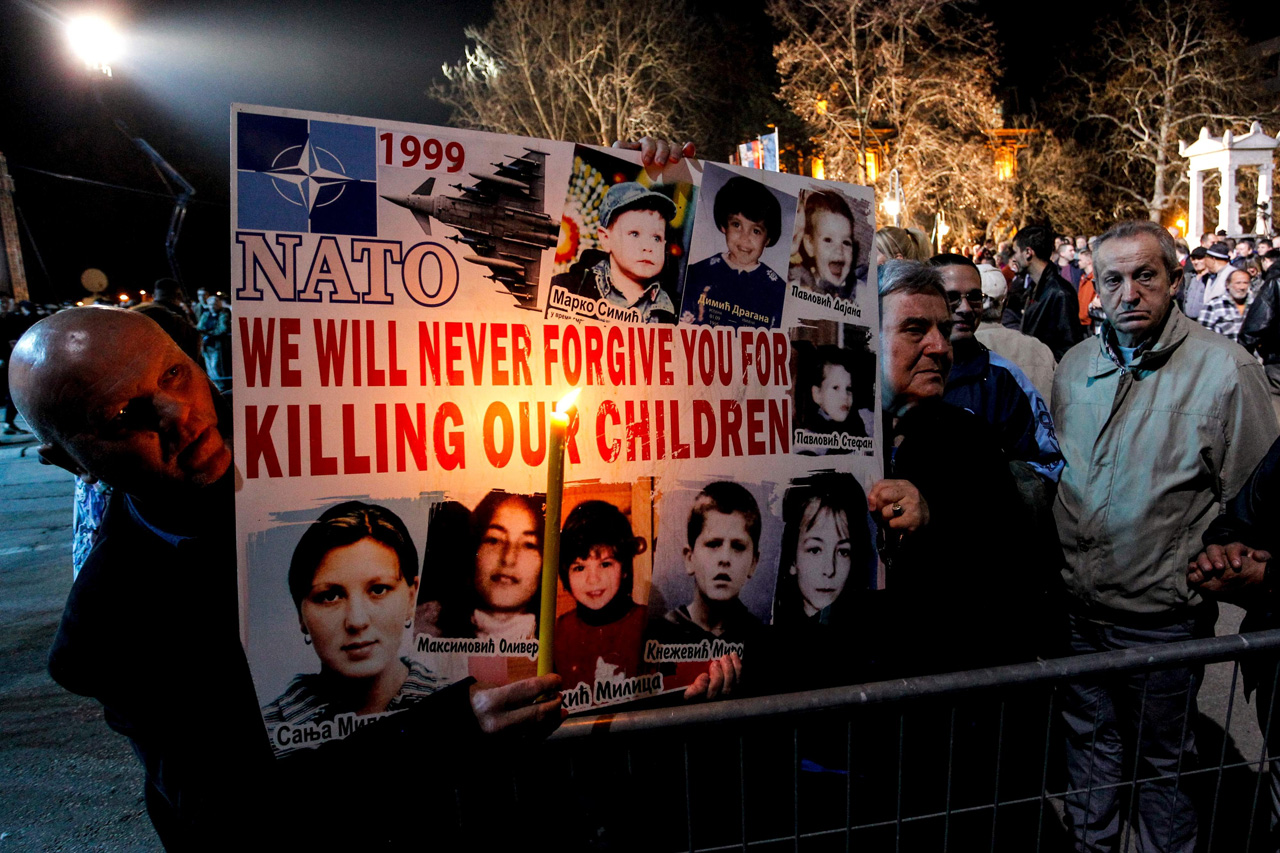
The third consequence
is the military and political colonization of the land of Kosovo. The war was won by NATO and its UÇK allies, and although the territory remained formally Serbia, in practice it was left to the armed forces and Western institutions. In this regard, EE.UU managed so much to dream of the construction of Camp Bondsteel, the largest military base outside its borders and which has played a very important role in the Iraqi invasion and other military operations in the Middle East.
The fourth conclusion concerns the coexistence of the inhabitants of Kosovo. After the end of the war, the Albanian refugees quickly returned to their homes, but unfortunately the humanitarian drama did not end there. The UÇK guerrillas and the Albanian nationalist extremists followed a violent persecution of ethnic minorities and “collaborationist” Albanians, but this time from the position of force that succeeds. During the stay of the NATO armed forces in Kosovo, numerous churches were burned and destroyed, Christian cemeteries and graves were banked, robberies, threats, house burns and murders were committed against Serbs, gypsies and other national minorities. Since 1999, hundreds of thousands of citizens have had to flee from Kosovo.
The fifth conclusion is the great acceleration of the albanization process in Kosovo. The plurinational institutional design of Western shared power is in the papers, but the vast majority of Albanian nationalists have never believed in such a Kosovo, which seeks to unravel the region in order to justify unity with Albania. Aware of the problem of achieving this, they adapted their strategy and focused their fight on the construction of the Albanian state of Kosovo. However, this State has been a great failure from the socio-economic point of view and has achieved almost everything that could be achieved from the national point of view. In this port, the triumph of Vetëvendosje seemed to imply significant changes in both dimensions: in the socio-economic sphere it is left-wing and has shown a firm will to put an end to the existing neo-liberal agenda, and announced that at the national level it would be a sovereign and independent policy of the Western powers.
For the time being, however, expectations have not been met. The de facto independent countries have very little sovereignty because they need the protection of an international power in order to survive. In the case of Kosovo, its sponsors are the drivers of neo-liberalism, so it does not seem easy to get out of this economic model. As far as the national dimension is concerned, Vetëvendosj cannot, at the moment, present any victory, but just in case to make this path possible, instead of making the announced independent policy, he is maintaining the same line as the previous governments. A paradigmatic example is that Kosovo has been the first European country to place the Israeli embassy in Jerusalem and the first country of the Muslim majority to do so. Of course, pleasing Israel is a way to please the United States.
The geopolitics of secession is thus, solidarity between countries seeking independence does not exist when the geopolitical game is interposed. That is why Mertxe Aizpurua and Aitor Esteban called for recognition of Kosovo, but they did not and will not call, for example, for recognition of Transnistria or South Ossetia in the name of democratic principles. Because democratic principles do not exist when we talk about secession, but geopolitical interests.
Kosovoko gerratik 25 urte pasatu diren arren, tentsioa nabaria da iparraldean bizi diren bi komunitate nagusien artean: albaniarrak eta serbiarrak. Azken bi urteetan gertatutakoek zauria gehiago irekitzea lortu dute eta egoera gaiztotu da, bereziki Kosovska Mitrovica hirian... [+]
Surely it is the children, unlike nothing else, who can move our hearts the most. But sometimes, when you make a political-communicative use of them, even if it is done with a good end, thought reveals all the misery of the bilateral game. Two very significant cases have been... [+]
On 17 February, the fifth anniversary of the proclamation of the secession of Kosovo was celebrated. In practice, however, secession occurred in 1999 when the NATO armed forces decided to occupy the territory and establish a neo-colony there. Since then, an almost perfect ethnic... [+]
Jatorriz kosovotarra den eta Bartzelonan bizi den Gani Jakupi kazetaria da, eta argazkilaria. Baina ilustratzailea ere bada, eta marrazkilaria eta argazkilaria. Eta esperientzia eta jakituria horiek guztiak biltzen ditu liburu honetan. Komikia esan behar nuen, baina... [+]











